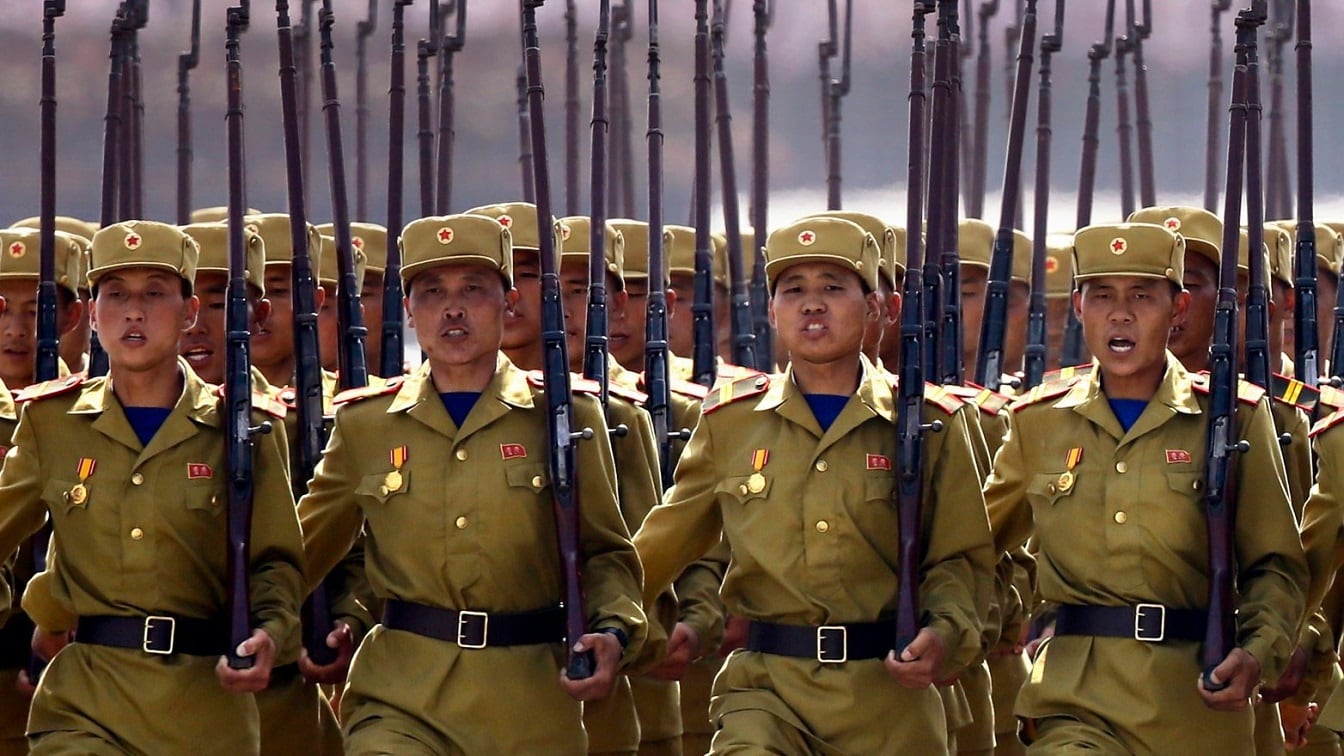If Russia’s Foreign Minister Sergei Lavrov has anything to say about it, sunny North Korea may soon become the next hot tourist destination for winter-weary Russians.
While visiting Pyongyang, the swinging North Korean capital, a few days ago, Lavrov was asked by a journalist whether he “would recommend that Russian tourists vacation” in the Democratic People’s Republic of Korea.
Lavrov’s answer was quick and to the point: “I would.”
Russia’s Riviera
Forget the Riviera, forget Turkey, forget the Emirates! Lavrov told the Russians. Who needs them when there are cut-rate tourist packages in a totalitarian hell?
Was Lavrov embarrassed by the absurdity of his response? His poker face resists reading, though it must have occurred to him that he was being a tad hypocritical. After all, his own daughter, like so many other privileged children of Russia’s elites, studied abroad, at Columbia University. Russian elites routinely vacation in all the places that Lavrov routinely denounces and studiously avoid any of the countries Lavrov publicly reveres. When was the last time an affluent Russian relaxed with a cold glass of Stoli on a beach in Syria, Iran, or Venezuela?
Worse, did Lavrov appreciate that he had just acknowledged the profoundly sad state to which he and his boss, Vladimir Putin, had reduced Russia? To regard North Korea as an indispensable ally, to go hat in hand to Pyongyang in the hope of receiving military aid, to speak of Russia’s “mutual solidarity,” “shared commitment,” and “friendship” with a state that even embarrasses China: these are all indications of Russia’s recognition that its only friends are in what Boston University’s Walter Clemens calls a “global partnership of failed states that have been bound more closely together since Russia’s invasion of Ukraine.”
That the Russian news agency, TASS, deigned Lavrov’s recommendation of vacationing in North Korea newsworthy enough to report but not newsworthy enough to merit more than three sentences suggests that even Russia’s propagandists realized just how preposterous Lavrov was. Alternatively, maybe TASS knew something that we don’t: that Russians needed only a little nudge to recall Russia’s increasing similarity to North Korea and yearn for some R&R in a country that looks and feels like home sweet home?
Dr. Alexander Motyl is a professor of political science at Rutgers-Newark. A specialist on Ukraine, Russia, and the USSR, and on nationalism, revolutions, empires, and theory, he is the author of 10 books of nonfiction, including Pidsumky imperii (2009); Puti imperii (2004); Imperial Ends: The Decay, Collapse, and Revival of Empires (2001); Revolutions, Nations, Empires: Conceptual Limits and Theoretical Possibilities (1999); Dilemmas of Independence: Ukraine after Totalitarianism (1993); and The Turn to the Right: The Ideological Origins and Development of Ukrainian Nationalism, 1919–1929 (1980); the editor of 15 volumes, including The Encyclopedia of Nationalism (2000) and The Holodomor Reader (2012); and a contributor of dozens of articles to academic and policy journals, newspaper op-ed pages, and magazines. He also has a weekly blog, “Ukraine’s Orange Blues.”

